The Different Types Of Residency You Need To Know
People choose the expat lifestyle for many reasons. Some seek greater personal freedom and better financial opportunities, while others want a lower...
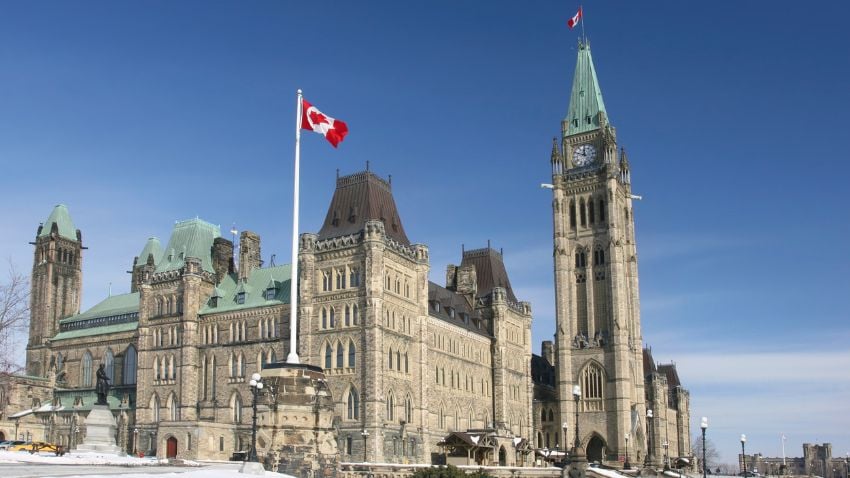
7 min read
Trudeau has done it again. Under the guise of “tax the rich” and “pay your fair share,” the Canadian government has passed 2024’s budget, which is surprisingly titled ”Fairness for every generation”.
This new fiscal plan includes the inclusion rate of capital gains from 50% to 66.6% (the number 66.6 is surely not a coincidence) over $250,000 CAD ($181,444 USD) realized annually by individuals and for all corporations and trusts.
The government came up with this confiscatory inclusion rate to supposedly fund initiatives like affordable housing and reduce everyday costs for Canadians—turns out, once again, it’s all propaganda.
This policy won’t just hit the wealthy; it is a destructive move that will exacerbate the brain drain, discourage investment, and, of course, penalize wealth creation. It’s fair to say that Canada is not a good place to make money anymore. This country is undoubtedly doomed.
If you want to avoid these types of confiscatory taxes, claim your free special report, Plan-B Residencies & Instant Citizenships, which is packed with valuable, actionable information to help you thrive and secure a second residency.
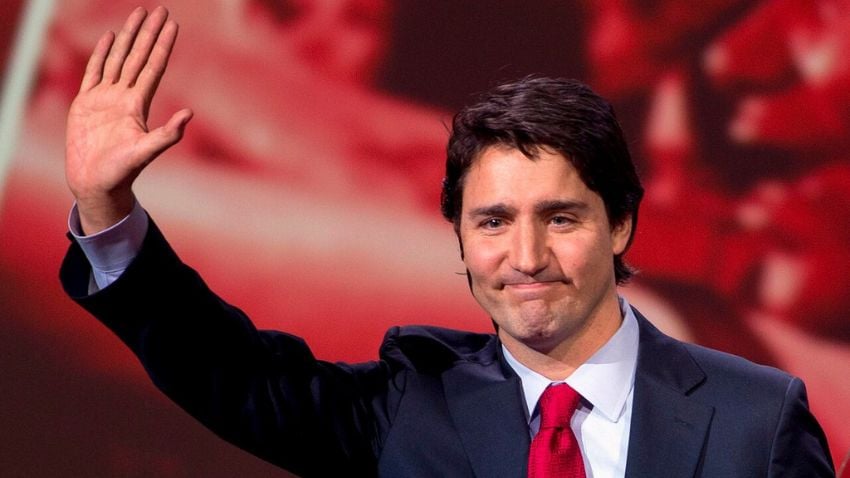
Justin Trudeau's policies, perceived as restricting economic freedom
The upcoming budget introduces a change to the capital gains inclusion rate, which will shift from 1/2 to 2/3. Here are the specifics:
For corporations and trusts, this new rate will apply to dispositions that occur after June 24, 2024;
For individuals, the rate will also move to 2/3 for any capital gains realized beyond an annual threshold of $250,000 after June 24, 2024.
The $250,000 CAD annual threshold encompasses capital gains accumulated directly by an individual or indirectly through partnerships or trusts. The amount is calculated net of the following:
Capital losses from the current year;
Previous years' capital losses are used to offset current year gains;
Capital gains are where specific exemptions are claimed, such as the lifetime capital gains exemption (LCGE), the new Employee Ownership Trust Exemption, or the Canadian Entrepreneurs’ Incentive.
With these adjustments, those who have capital gains exceeding the $250,000 CAD limit and are in the highest income tax bracket will face this new inclusion rate.
The budget proposes to reduce the stock option deduction to 1/3, in line with the revised capital gains inclusion rate, ensuring it aligns with the changes to the capital gains rate. However, individuals can still claim a deduction of half the taxable benefit on amounts up to $250,000 CAD annually, which covers both employee stock options and capital gains.
The rate for including net capital losses that are carried forward and applied against capital gains will be adjusted accordingly to match the inclusion rate of the capital gains they offset.
Specific rules will be introduced for transitional periods. For tax years starting before June 25, 2024, and ending after June 24, 2024, capital gains realized before June 25, 2024, will adhere to the existing 1/2 inclusion rate. Conversely, gains realized after June 24, 2024 (net of any losses) will be subjected to the new 2/3 inclusion rate. The $250,000 CAD threshold for individuals will not be prorated in 2024 and will only apply to capital gains incurred after June 24, 2024.
Expect further clarification on these updates in the upcoming months.
Justin Trudeau (Castro) is constantly demonstrating that he is all about taking away Canadians' freedoms. This time, he wants to hinder economic freedom, which is the best tool for individuals and families to protect themselves against any crisis or difficulties. However, when socialists (and Satan Worshippers) are in power, they want the populace to be slaves to them. To sugarcoat this agenda, they always go for the rich—whatever that means.
In this case, not only did Canada have an astronomical inclusion rate of capital gains of 50%, but from June 25, 2024, this rate will turn to 66.6%. Basically, increase the capital gains inclusion rate from 1/2 to 2/3, effective June 25, 2024 (up to $250,000 CAD of annual gains for individuals will continue to benefit from the 1/2 inclusion rate). Sell your assets in Canada and get out as soon as possible, ideally something that will actually retain value.
The government's alleged reason for doing this is to target the wealthy because 50% inclusion rate for them is too low; according to Canadian government officials, “By increasing the capital gains inclusion rate, we will tackle one of the most regressive elements in Canada’s tax system”.
However, this policy will actually impact middle-class investors (if such a thing as the middle class still exists) and small business owners who rely on investment income for retirement or capital. The message is clear: wealth creation and productive members of society in Canada are being penalized.
Furthermore, the assumption that the government will generate more tax revenue is mistaken. Firstly, when a country is hostile towards investors and wealthy individuals, they tend to look for ways to safeguard their wealth, often as simple as moving abroad. Second, the government turns out to be the least efficient administrator of funds. Although I defend the conversion of these billions of dollars into affordable housing and the "defense of democracy", the truth is that inefficiencies in government spending persist.
As Nobel Prize-winning economist Milton Friedman observed in 1976, there are only four ways to spend money: the first is on oneself, where the spender can precisely supervise the way in which funds are allocated, thus encouraging optimal spending; the second is to spend the money elsewhere, where the cost usually exceeds the satisfaction; the third is to spend someone else's money on yourself, prioritizing satisfaction over cost, since whoever spends it does not bear any personal financial burden; and finally, the fourth is spending someone else's money on someone else, where neither cost nor satisfaction is a concern - and this is precisely the way politicians spend tax money.
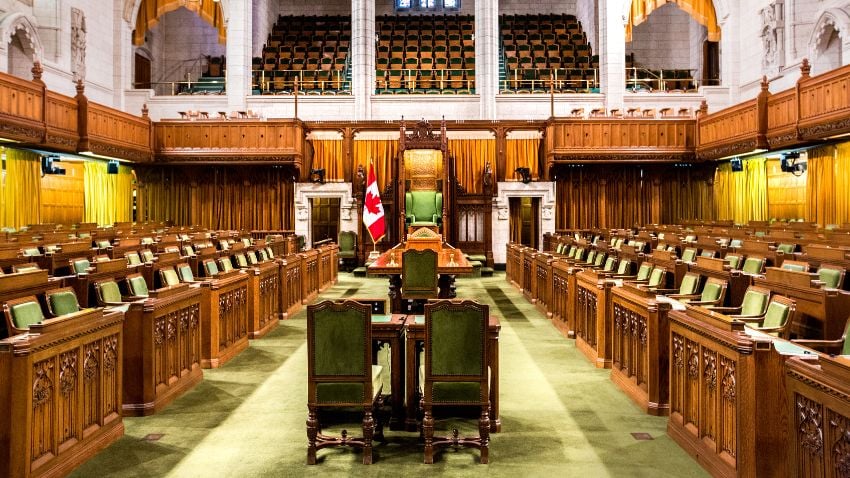
The proposed increase in the rate for capital gains in Canada is feared to worsen the country's already low productivity, discouraging investment and innovation, impacting not only the wealthy but also middle-class investors and small business owners, potentially stifling economic growth and job creation
In Canada’s already low-productive economy, higher taxes on capital gains (and in the inclusion rates for capital gains) will further exacerbate a chronic problem the country has been facing for years. High taxes on capital gains discourage investment by reducing the net returns investors expect from equity markets, real estate and other investments. Consequently, this diminishing incentive will lead to poor capital inflows, which are the cornerstone of innovation, business expansion and infrastructure projects.
Moreover, these taxes often affect a broader demographic, including middle-class individuals who invest in stocks or mutual funds and small business owners relying on investment gains for business growth or personal savings. When these groups face higher taxes, they may reduce their spending or investment activities, decreasing overall economic activity and job creation.
Imagine a tech startup on the brink of expansion. Before this tax hike, the projected after-tax return from an investment in new research and development might have been sufficient to justify the risk. However, the new after-tax return drops below the company’s threshold for acceptable risk. The result? They put off the expansion plans. This is and will be the reality of multiple businesses on Canadian soil. Investment and risk-taking are not encouraged anymore.

The Freedom Convoy was one of the few pro-freedom movements that took place in recent years in Canada, where people had their bank accounts blocked for simply disagreeing with the government
“Tax the rich is the motto,” but the truth is that the average citizen is the most affected. By raising the tax burden on investments, the policy could push highly skilled workers, entrepreneurs, and wealthy individuals to relocate to countries with more favourable tax environments. The result is a loss of talent and innovation, as well as a reduction of capital available for local investments.
Working all over the world and possessing the flexibility to move across borders is what expats do, so a country like Canada will not be an option for them. In fact, a Canadian expat will hardly consider a return from a low-tax jurisdiction, given the increased tax liabilities on their investment income. Instead, they will choose a country where their capital yields higher after-tax returns.
Moreover, the potential for higher taxes could deter foreign investors and expats from entering the Canadian market. They might opt to invest in or move to countries like Singapore or the Cayman Islands, known for their stable and low-tax regimes, thus diverting crucial foreign direct investment away from Canada.
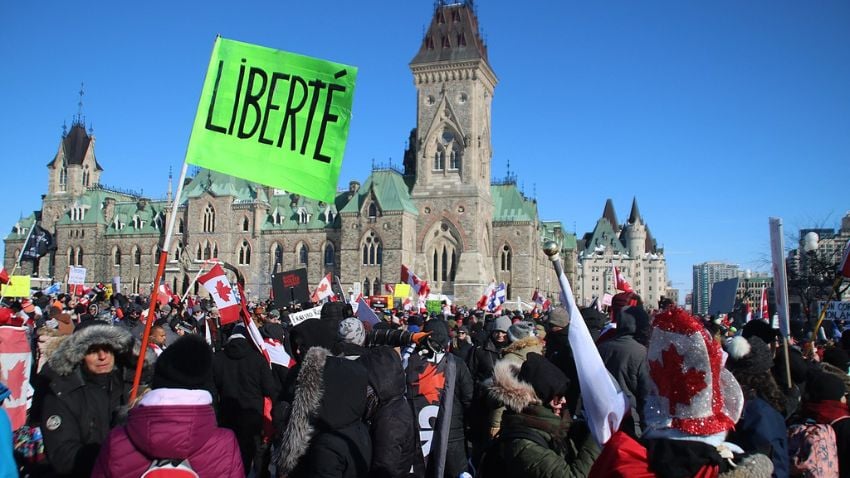
Canadians wanting to break free from this satanic government must take action now
There’s nothing we can do to change these tax policies. The “new normal” is all about taking away your freedoms as much as possible, so do not expect the government to save you. The good news is that you can always opt for jurisdictions with lower tax rates and a more robust rule of law.
Countries like Uruguay and The United Arab Emirates are prime examples of jurisdictions that have successfully attracted global talent and investment because of their tax regimes. By not taxing or imposing low taxes on capital gains, the increased profitability of investments attracts entrepreneurs and investors looking for stability. Countries with such economic conditions include the Bahamas, Paraguay and Panama.
The choice to explore and move to markets with more favourable tax conditions is more than just a financial decision; it's a strategic approach to optimizing growth potential and safeguarding assets.
As the tax environment evolves, reassessing your investment strategies becomes critical. Investors should consider the timing of asset sales to take advantage of prevailing tax rates before potential increases. Furthermore, optimizing investment portfolios by incorporating tax-efficient assets or transferring funds to jurisdictions with more favourable tax laws could significantly lower tax obligations. Such strategic adjustments require meticulous planning and foresight, highlighting the importance of proactive management to sustain the health of your investments.
Navigating the complexities of international tax regulations requires specialized knowledge. It is essential to consult with tax professionals and financial advisors who are experts in international finance and tax planning. These professionals can offer insights into the nuances of cross-border taxation and assist in formulating strategies that comply with legal requirements while aligning with your financial goals. Their expert advice is crucial in leveraging international treaties and agreements to your advantage, potentially offering significant tax benefits.
Looking beyond financial implications, exploring international opportunities also involves considering lifestyle, mobility, and personal safety. Securing alternative residencies or citizenships can provide substantial advantages such as enhanced quality of life, increased security, and greater freedom of movement. Countries with residency-by-investment and citizenship-by-investment programs often feature appealing tax structures and business opportunities, which are advantageous for those expanding their personal and professional lives internationally. Making these decisions requires a comprehensive approach, weighing financial benefits against personal and family priorities.
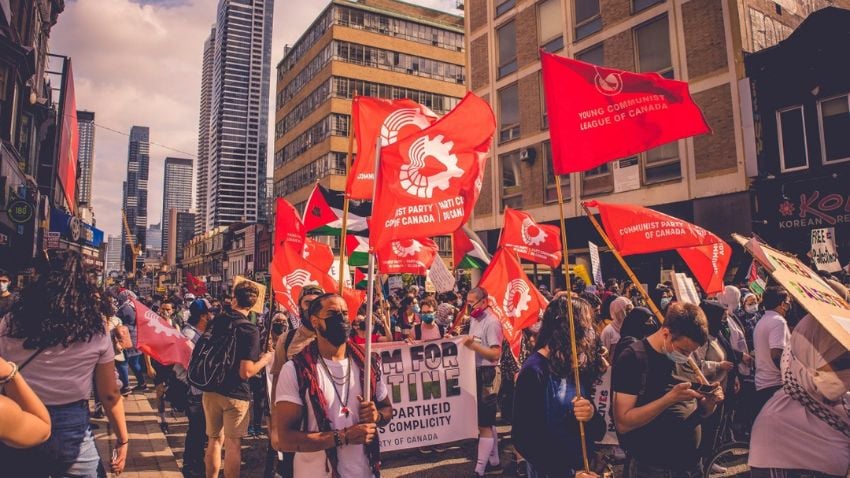
Socialists have won yet another fight against freedom in Canada, unfortunately
As Canada moves forward with its 2024 budget to increase the inclusion rate for capital gains, it is clear that the country is doomed. This policy will further hinder investment and entrepreneurship while causing a brain drain as talent and capital seek more favourable environments. Also, the 66.6 inclusion rate does not look accidental; it is not difficult to see what this government has in mind. You’re better off somewhere better not only to keep more money in your pockets but also to raise a family.
While Canada's fiscal landscape may seem increasingly challenging, the world remains vast and full of opportunities. For those feeling constrained by Canada's looming tax burdens, the global stage offers many alternatives. Countries with lower tax rates and more business-friendly regulations, such as Paraguay, Uruguay or Panama, attract investors and professionals to relocate, bringing their capital and skills where they are more valued.
Canada's tax policy may represent a local setback, but for the expats, the world is your oyster. The narrative is not so much about Canada's downfall as it is about the rise of global opportunities. If you want to thrive regardless of the obstacles and craft a plan B, I strongly encourage you to read this important letter and fill out the form below. Do not wait until it’s too late. Act now.
If you want the best intel from the expat world, including profitable offshore opportunities, little-known tax-saving strategies, and hard-won insights on immigration, passports, and Plan-B residencies, all delivered to your inbox every single week, then join our daily correspondence, EMS Pulse®. Currently enjoyed by over 84,000 expats and expat-hopefuls worldwide. Fill in the form below to join our newsletter free:

Written by Mikkel Thorup
Mikkel Thorup is the world’s most sought-after expat consultant. He focuses on helping high-net-worth private clients to legally mitigate tax liabilities, obtain a second residency and citizenship, and assemble a portfolio of foreign investments including international real estate, timber plantations, agricultural land and other hard-money tangible assets. Mikkel is the Founder and CEO at Expat Money®, a private consulting firm started in 2017. He hosts the popular weekly podcast, the Expat Money Show, and wrote the definitive #1-Best Selling book Expat Secrets - How To Pay Zero Taxes, Live Overseas And Make Giant Piles Of Money, and his second book: Expats Guide On Moving To Mexico.
.jpg)
People choose the expat lifestyle for many reasons. Some seek greater personal freedom and better financial opportunities, while others want a lower...

What would you do if tensions between world powers escalated to nuclear conflict? With the ongoing crises in the Middle East and Ukraine, many people...

Every year brings new lessons, opportunities, and milestones worth revisiting. As 2025 comes to a close, we’re taking a moment to reflect on the...